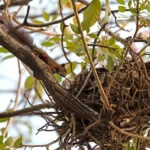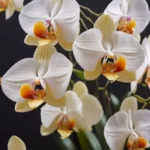The buzzing presence of wasps in outdoor spaces can disrupt the tranquility of gatherings and leisure time. Seeking effective ways to deter these stinging insects is a common concern for many. One popular solution that has garnered attention is citronella, known for its insect-repelling properties. In this exploration, we delve into the question: Does citronella repel wasps? Unraveling the science behind citronella and its potential impact on wasps will shed light on whether this natural remedy holds promise for creating wasp-free outdoor environments.
Citronella
Citronella, derived from various species of lemongrass, is renowned for its aromatic properties and is often utilized as a natural insect repellent. Traditionally employed to deter mosquitoes, citronella’s distinct scent is harnessed in various products such as candles, oils, and sprays. The question arises: Does citronella’s reputation as a mosquito repellent extend to wasps? To comprehend its potential efficacy, we must first grasp the composition and historical use of citronella in the realm of insect deterrence.
What Attracts Wasps?
Understanding the factors that attract wasps is crucial for effective repellent strategies. Wasps are drawn to:
- Food Sources: Wasps are opportunistic feeders, attracted to sugary substances and proteins. Outdoor gatherings with food can be particularly appealing.
- Scents: Strong scents from flowers, perfumes, or certain materials can attract wasps. They may also be drawn to food odors.
- Nesting Sites: Wasps seek suitable locations for nesting, such as eaves, trees, or secluded areas.
- Sweet Beverages: Sugary drinks can be a magnet for wasps, especially during warmer seasons.
Citronella and Wasps: The Scientific Perspective
While citronella is renowned for its efficacy against mosquitoes, the scientific evidence regarding its impact on wasps is nuanced. Scientific studies exploring citronella’s effectiveness against wasps are limited, and the results are not always conclusive. Citronella primarily targets mosquitoes due to their sensitivity to certain odors, but wasps may not be as deterred by these scents. It’s essential to approach the use of citronella for wasp repellency with an awareness of its potential limitations and the need for a broader understanding of wasp behavior.
Using Citronella to Deter Wasps
While scientific evidence on citronella’s impact on wasps may be limited, incorporating citronella in outdoor spaces can still be part of a holistic strategy to deter these stinging insects:
- Citronella Candles: Placing citronella candles strategically around outdoor areas can create a barrier of scent that may discourage wasps.
- Citronella Oil: Applying citronella oil to certain surfaces or using it in diffusers can contribute to a fragrant environment that potentially deters wasps.
- Citronella Plants: Planting citronella-scented plants in garden areas may add a natural layer of defense against wasps.
Limitations and Considerations
While citronella can be a useful component in the quest to deter wasps, it’s important to acknowledge its limitations:
- Varied Sensitivity: Wasps may not be as sensitive to citronella as mosquitoes. Some wasp species are attracted to protein-based scents, and citronella might not have a strong impact on their behavior.
- Localized Effect: The effectiveness of citronella may be localized, and its impact on wasp behavior could be influenced by factors such as wind direction and the proximity of attractants like food.
- Comprehensive Approach: A comprehensive approach to wasp control involves addressing attractants, securing food sources, and employing various repellent strategies beyond citronella.
Safety Concerns and Alternatives
When using citronella or any repellent strategy against wasps, it’s crucial to consider safety:
- Allergies: Individuals with allergies to citronella or related substances should exercise caution. Testing a small area before widespread use is advisable.
- Citronella Candles: While citronella candles are popular, open flames pose fire risks. Opting for flameless alternatives can mitigate safety concerns.
- Alternative Repellents: In addition to citronella, explore alternative wasp repellents, such as peppermint oil, eucalyptus oil, or commercial wasp repellent products.
Conclusion
In the quest to create wasp-free outdoor spaces, citronella emerges as a potential ally, albeit with nuanced effectiveness. While scientific evidence may not definitively support its impact on wasps, the aromatic properties of citronella still offer a layer of defense. Understanding what attracts wasps, incorporating citronella strategically, and considering safety concerns form part of a comprehensive approach to wasp deterrence.
The effectiveness of citronella is influenced by various factors, including wasp species and environmental conditions. As we navigate the delicate balance of enjoying outdoor spaces while minimizing wasp encounters, it’s essential to embrace a multifaceted strategy. By combining citronella with alternative repellents and addressing attractants, individuals can create outdoor environments that are less inviting to wasps, fostering a safer and more enjoyable outdoor experience.





